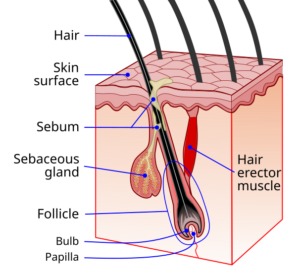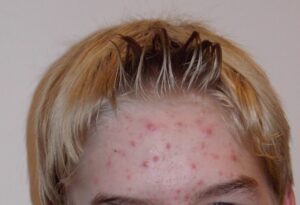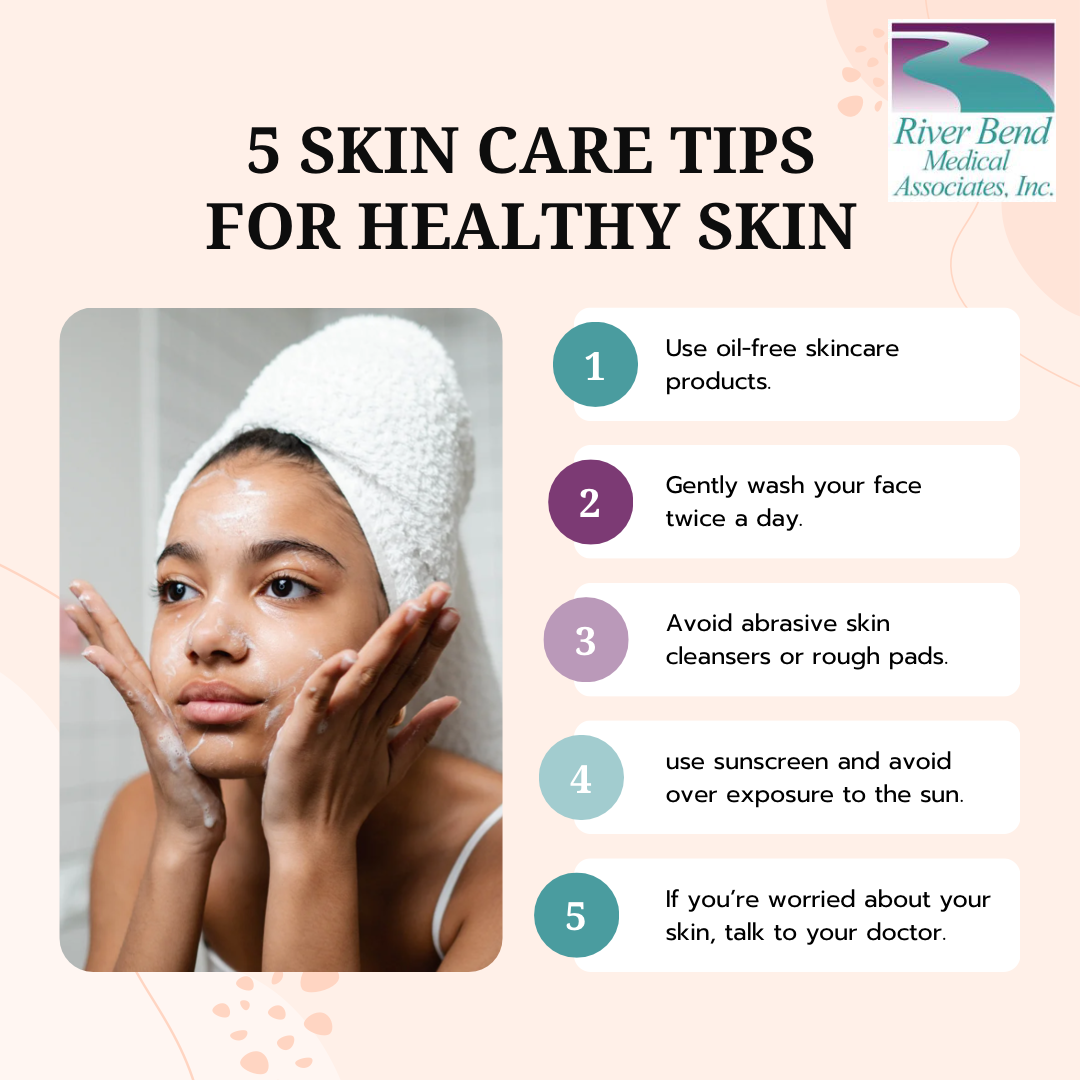As part of the American Academy of Dermatology’s Healthy Skin Month, we thought we would share some helpful information on a subject that is important to many of our adolescent patients and their parents – Acne.
Many tweens, teens, and adults get acne. Pimples and blackheads can be embarrassing and make you feel bad about your appearance, but remember almost everyone has acne at some point. While acne isn’t life-threatening, severe cases can lead to scarring that lasts for many years.
What is Acne?

Acne is an inflammatory skin condition that causes bumps or lesions on the skin commonly referred to as pimples or zits. Acne lesions form when tiny hair follicles in your skin become blocked by oil and dead skin cells.
If a follicle is plugged, bacteria can grow rapidly and irritate the skin.
Outbreaks of acne most often appear on the face, but can also occur on the shoulders, back, and chest. Acne typically begins in your early teen years and can last into adulthood.
Male or female, nearly everyone suffers from an acne outbreak at some point in their life.
Types of Acne Spots
Your body produces oil, or Sebum, to keep your skin from drying. Your skin secretes the oil through the sebaceous gland connected to a hair follicle. When the gland is unable to effectively express oil out to the skin surface due to a blockage, pores can form blackheads, whiteheads, or other forms of acne. Most people have experienced all the different forms of acne. Following is a description of the most common spots or types of acne.
Blackhead:
- Is a hair follicle clogged near the surface of the skin. They look black when Sebum, oil, is exposed to the air. It is not due to dirt.
Whitehead:
- Clogged hair follicles that stay beneath the skin and produce a white bump.
Pustules:
- Pimples that are red at the base and topped by yellow or white pus-filled lesions.
- Inflammatory Papules: Inflamed acne lesions that often appear as small, pink bumps that may be tender to the touch.
Nodules:
- Large, painful, solid lesions that form deep within the skin. Severe nodules called cystic acne can be painful.
How is Acne Diagnosed?
Your family physician or health care provider can usually diagnose acne by examining the irritation on your skin. In addition to a skin exam and evaluation of any acne lesions you may have, your doctor may:
- Ask about your family medical history and menstrual status (hormone changes can affect acne).
- Discuss any medications you are currently taking.
- Ask about your symptoms, including how long you have had acne.
Treatments for Acne
Over-the-counter acne treatments can be helpful. Lotions, gels, soaps, or cleansing pads containing benzoyl peroxide, which kills the bacteria and dries up the oil, are common and usually effective. If OTC medications for acne do not provide relief, your doctor may prescribe medications: retinoids, antibiotics, isotretinoin, hormone therapy, or corticosteroids to treat your acne.
Caring for Your Skin
Skin health is essential. As skin is your largest organ and it plays a vital role in protecting your body, you should keep it as healthy as possible. Healthy skin can help keep you from getting sick or damaging your muscles, bones, and internal organs.
While acne cannot be prevented or avoided, there are things that you can do to care for your skin and potentially lessen the severity of your outbreaks.
- Do not use abrasive soaps, astringents, or rough scrub pads. Be gentle while cleansing your skin with mild soap. Rinse your skin with warm water.
- Avoid pinching, rubbing, or touching skin lesions. Scratching or squeezing blemishes can cause scars or dark spots to develop.
- Wash your hair with shampoo regularly, especially if you have oily hair.
- Avoid using oil-based make-up.
- Shave carefully with a sharp blade.
- Avoid excessive sun exposure and use sunscreen.
- Talk to your doctor if you’re concerned about skin health issues.
Acne is a common skin condition that affects almost everyone at some point. If your acne is painful or bothers you, call for an appointment with your family doctor. Your healthcare provider can help with information and medications to treat your acne. If your skin condition is severe, they can refer you to a dermatologist (a skin specialist).
If you have concerns about your skin or acne and want to speak with one of our caring medical professionals, contact River Bend Medical Associates. As part of your medical team, we are here to provide you with the best care in all aspects of your healthcare needs. To learn more about our medical practice or to make an appointment, contact River Bend Medical Associates, or call 916-392-4000.



